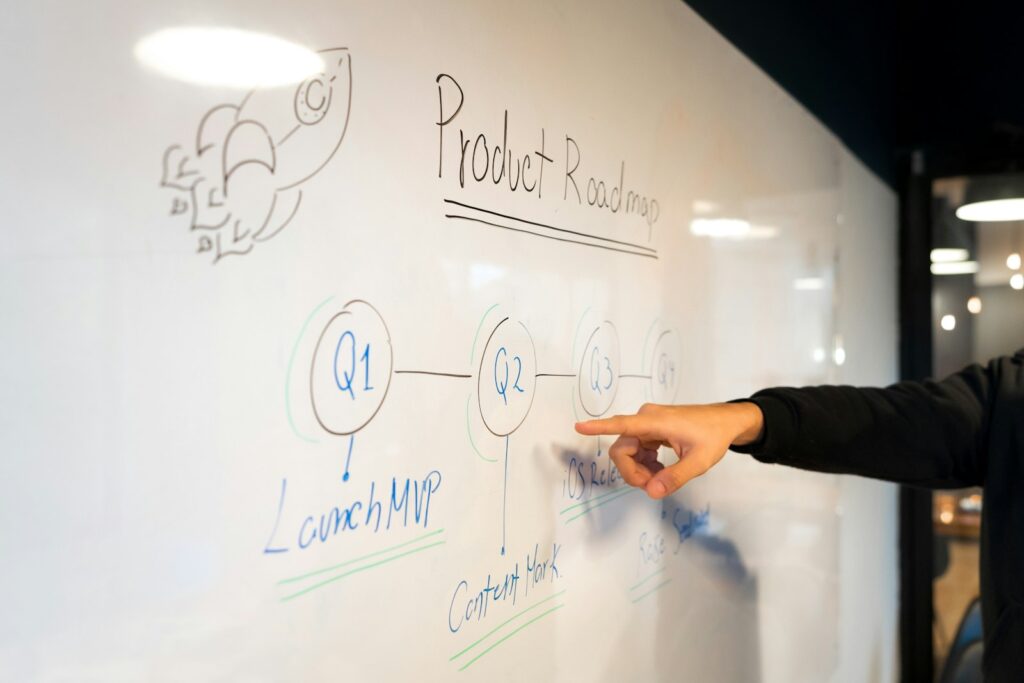The cybersecurity industry is booming like never before. Demand for security analysts and cybersecurity professionals rose by 123% between 2019-2023, according to recent industry reports. But here’s the thing – there are too many open positions and not enough skilled people to fill them.
Think of it like having superhero suits but not enough heroes to wear them. That’s exactly where cybersecurity certifications come in. They’re your ticket to becoming that hero.
I remember talking to Sarah, a network administrator from Chicago, who told me: “I was stuck in the same role for three years. Then I got my Security+ certification, and within six months, I had three job offers. My salary jumped by $15,000.”
This roadmap will show you exactly which certifications to pursue and when. No complex jargon. No confusing paths. Just a clear, step-by-step guide that anyone can follow.
Why Cybersecurity Certifications Matter More Than Ever
Let’s be honest. Cybersecurity isn’t just about knowing technology anymore. It’s about proving you know it. Employers get hundreds of resumes for every security position. Certifications are what make you stand out from the crowd.
Here’s what makes certifications so powerful:
- They validate your skills with industry-standard tests
- Employers trust them because they’re hard to fake
- They often lead to immediate salary increases
- They give you structured learning paths
- They connect you with professional communities
“Before I got certified, I felt like I was speaking a different language in job interviews,” says Mike, a security consultant from Texas. “After getting my CISSP, suddenly everyone took me seriously.”
The Entry Level: Where Everyone Starts
CompTIA Security+ – Your First Step

CompTIA Security+ is the most popular entry-level cybersecurity certification in the world. If you could only get one certification, this would be it.
Cost: Around $381 USD for the exam voucher
Study Time: 2-3 months for beginners
Experience Required: None (though 2 years IT experience is recommended)
Security+ covers the basics that every cybersecurity professional needs to know:
- Network security fundamentals
- Risk management principles
- Cryptography basics
- Incident response procedures
- Identity and access management
The beauty of Security+ is that it’s vendor-neutral. This means you’re not learning just one company’s products. You’re learning concepts that apply everywhere.
CompTIA Network+ and A+ – Building Your Foundation
If you’re completely new to IT, don’t jump straight into Security+. Start with CompTIA A+ and Network+ to build your foundation.
Think of it like learning to drive. You wouldn’t start on the highway. You’d begin in an empty parking lot, then move to quiet streets, and then tackle busy roads.
CompTIA A+ teaches you how computers work. CompTIA Network+ shows you how networks function. Once you understand these basics, security concepts make much more sense.
ISC2 Certified in Cybersecurity (CC) – The Free Alternative
Here’s a secret that many people don’t know: ISC2 offers a completely free entry-level certification called CC (Certified in Cybersecurity).
Cost: Free (yes, really!)
Study Time: 1-2 months
Experience Required: None
The catch? It’s newer than Security+, so not all employers know about it yet. But it’s gaining recognition fast, thanks to ISC2, the same organization behind the prestigious CISSP certification.
The Intermediate Level: Specializing Your Skills
Once you’ve got an entry-level certification under your belt, it’s time to specialize. This is where you choose your path based on what interests you most.
For Ethical Hackers: CEH and OSCP
Certified Ethical Hacker (CEH)
Cost: $950 USD
Study Time: 3-4 months
Experience Required: Some IT background helpful
CEH equips you to defend against hackers by understanding their mindset. It’s ideal for roles in penetration testing or vulnerability assessment.
“CEH was a game-changer for me,” shares Lisa, a penetration tester from California. “It revealed how attackers think. Now, I can identify vulnerabilities others miss.”
OffSec Certified Professional (OSCP)
Cost: $1,749 USD (includes course and exam)
Study Time: 6-12 months
Experience Required: Strong technical background
OSCP stands as the pinnacle for penetration testing certifications. It’s a hands-on test – you must hack systems to pass. No multiple choice questions are involved.
This certification is challenging. Yet, it commands immense respect. Earning an OSCP opens doors to top security roles.
For Security Analysts: GCIH and CySA+
GIAC Certified Incident Handler (GCIH)
Cost: Around $7,000 (includes training)
Study Time: 3-6 months
Experience Required: Some security experience
GCIH specializes in incident response and digital forensics. It’s perfect for those who investigate security breaches.
CompTIA CySA+ (Cybersecurity Analyst)
Cost: Around $370 USD
Study Time: 2-3 months
Experience Required: Security+ or equivalent knowledge
CySA+ bridges the gap between Security+ and advanced certifications. It focuses on threat detection and analysis.
For Cloud Security: AWS, Azure, and Google Cloud
Cloud security is booming. Almost every company is moving to the cloud, and they need people who can secure it.
AWS Certified Security – Specialty
Cost: $300 USD
Study Time: 3-4 months
Experience Required: Some AWS experience
This certification proves your ability to secure applications and workloads on Amazon Web Services.
Microsoft Security Certifications (SC-300, SC-200, SC-400)
Cost: $165 USD each
Study Time: 2-3 months each
Experience Required: Some Microsoft 365 experience
Microsoft offers several security-focused certifications. SC-300 focuses on identity management, SC-200 on security operations, and SC-400 on information protection.
Google Cloud Professional Cloud Security Engineer
Cost: $200 USD
Study Time: 3-4 months
Experience Required: 1+ years Google Cloud experience
Google’s security certification is gaining importance as more companies adopt Google Cloud.
The Advanced Level: Leadership and Expertise
CISSP – The Gold Standard
Certified Information Systems Security Professional (CISSP) is the most respected cybersecurity certification in the world.
Cost: $749 USD
Study Time: 4-6 months
Experience Required: 5 years (can be reduced with education)
CISSP isn’t just technical. It covers eight domains including risk management, security governance, and business continuity. It’s designed for security managers and leaders, not just technical specialists.
“Getting my CISSP changed everything,” says Robert, a CISO from New York. “Suddenly, I was having conversations with executives instead of just other technical people. It opened doors I didn’t even know existed.”
The CISSP requires five years of experience in at least two of its eight domains. But here’s a tip: a four-year degree can substitute for one year of experience.
CISM and CISA – For Management Roles
Certified Information Security Manager (CISM)
Cost: $760 USD
Study Time: 4-5 months
Experience Required: 5 years in information security management
CISM focuses on information security management and governance. It’s perfect if you want to be a security manager or CISO.
Certified Information Systems Auditor (CISA)
Cost: $760 USD
Study Time: 4-5 months
Experience Required: 5 years in IS audit, control, or security
CISA is for those who audit and assess security programs. It’s highly valued in consulting and compliance roles.
Vendor-Specific Expert Certifications
Cisco CCIE Security
Cost: $1,600 USD (lab exam)
Study Time: 1-2 years
Experience Required: Extensive Cisco experience
CCIE Security is one of the most difficult certifications in IT. It includes both written and hands-on lab exams. Only a few thousand people worldwide hold this certification.
Microsoft SC-100 (Cybersecurity Architect)
Cost: $165 USD
Study Time: 4-6 months
Experience Required: Senior-level security experience
SC-100 is for security architects who design enterprise security strategies using Microsoft technologies.
The Specialist Paths: Niche but Valuable
Digital Forensics and Incident Response
GCFA (GIAC Certified Forensic Analyst)
Cost: Around $7,000
Study Time: 4-6 months
GCFE (GIAC Certified Forensic Examiner)
Cost: Around $7,000
Study Time: 4-6 months
These certifications focus on digital forensics and incident response. They’re perfect if you want to be the person who investigates cybercrimes.
Industrial and IoT Security
GICSP (Global Industrial Cyber Security Professional)
Cost: $1,300 USD
Study Time: 3-4 months
Industrial control systems security is a specialized but growing field. With more devices connecting to the internet, IoT security expertise is becoming incredibly valuable.
Creating Your Personal Roadmap

Now that you know the options, how do you create your personal path? Here’s a simple framework:
Step 1: Assess Your Current Situation
- Are you completely new to IT? Start with CompTIA A+ and Network+.
- Do you have some IT experience? Jump straight to Security+.
- Are you already working in security? Choose a specialization that matches your interests.
Step 2: Set Your Goals
Think about where you want to be in five years. Do you want to be:
- A technical specialist (OSCP, GCIH)
- A security manager (CISSP, CISM)
- A cloud security expert (AWS, Azure, Google Cloud)
- A consultant (CISA, various GIAC certifications)
Step 3: Plan Your Timeline
Don’t try to get every certification at once. Most people can handle one certification every 6-12 months while working full-time.
Here’s a sample 3-year roadmap for someone starting from scratch:
- Year 1: CompTIA Security+ (foundation)
- Year 2: Choose a specialization (CEH, CySA+, or cloud certification)
- Year 3: Advanced certification (CISSP, CISM, or expert-level specialization)
Step 4: Budget Your Investment
Certifications are an investment. But they typically pay for themselves within the first year through salary increases.
Here are some budget-friendly tips:
- Start with free resources like Professor Messer’s Security+ videos
- Use employer training budgets when available
- Consider bootcamps for intensive preparation
- Study groups can provide motivation and cost-sharing opportunities
The Hidden Costs (And How to Minimize Them)
When budgeting for certifications, don’t forget about these additional costs:
- Study Materials: $200-500 per certification
- Practice Exams: $50-200 per certification
- Training Courses: $1,000-7,000 per certification
- Renewal Fees: Most certifications require continuing education
Pro tip: Many employers will pay for certification training and exams. Ask your manager about professional development budgets before paying out of pocket.
Common Mistakes to Avoid
Mistake #1: Certification Hoarding
Some people collect certifications like Pokemon cards. It’s better to have fewer relevant certifications than many irrelevant ones.
Mistake #2: Ignoring Prerequisites
Don’t jump to advanced certifications without building proper foundations. It’s like trying to learn calculus without understanding algebra.
Mistake #3: Choosing Based on Cost Alone
The cheapest certification isn’t always the best choice. Consider the return on investment, not just the upfront cost.
Mistake #4: Studying in Isolation
Join study groups, online forums, and professional organizations. Learning with others makes the journey easier and more effective.
Staying Current: The Ongoing Journey
Cybersecurity evolves rapidly. Most certifications require continuing education to maintain. This isn’t a burden – it’s a feature. It ensures your knowledge stays current.
Here are ways to stay updated:
- Attend cybersecurity conferences
- Join professional organizations like ISC2 or ISACA
- Follow cybersecurity blogs and podcasts
- Participate in online communities
- Take refresher courses
The ROI: What to Expect
Let’s talk numbers. Cybersecurity certifications typically increase salaries by 5-25%. Here are some real-world examples:
- Security+ can increase salary by $5,000-15,000
- CISSP often leads to $10,000-25,000 increases
- Specialized certifications (OSCP, GCIH) can command premium salaries
“My CISSP certification increased my salary by $22,000,” reports Jennifer, a security architect from Seattle. “The exam cost $749, but it paid for itself in the first month.”
The Future of Cybersecurity Certifications
The certification landscape is evolving. Hands-on, practical certifications are becoming more valuable than purely theoretical ones. Cloud security, AI security, and IoT security are growing fields.
New trends to watch:
- Micro-certifications for specific skills
- Continuous assessment instead of one-time exams
- Integration with real-world work experience
- Focus on soft skills and business understanding
Your Next Steps
Here’s your action plan:
- Assess your current knowledge and experience
- Choose your first certification based on your career goals
- Create a study schedule and stick to it
- Join a study group or find a study partner
- Schedule your exam when you’re ready
- Start planning your next certification
Remember, the journey of a thousand miles begins with a single step. Your cybersecurity certification roadmap doesn’t have to be perfect from the start. It just needs to get you moving in the right direction.
The cybersecurity industry needs skilled professionals now more than ever. Every certification you earn makes you more valuable and brings you closer to your career goals.
Start today. Your future self will thank you.
Whether you’re protecting small businesses from ransomware or designing security architectures for global corporations, certifications provide the foundation for success. The path might seem long, but every expert was once a beginner.
The cybersecurity field offers incredible opportunities for those willing to invest in their education. With the right certifications and determination, you can build a rewarding career protecting the digital world.
























